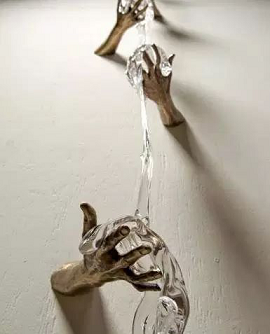Reflections On The Need To Be In Control

REFLECTIONS ON THE NEED TO FEEL IN CONTROL
“Due to circumstances beyond my control
I am master of my fate and captain of my soul”
….Ashleigh Brilliant
One of the most fundamental of human dilemmas is the lack of control over circumstances we think essential to being happy. Beyond efforts to master conditions which are basic to survival, there is a continual challenge and struggle to meet a multitude of life demands. We expend enormous energy trying to get what we want and avoid the bad things in life. And then, in addition, our lack of power over what we can’t control leads to feelings such as anxiety, anger, or depression. These unwanted feelings constitute a secondary challenge which we also can’t control. Taken together, unpleasant experiences which arise from our lack of control is a fundamental part of the human predicament.
The effort to be in control is closely linked to trait anxiety, sometimes defined as the tendency to live in the gap between the now and the future. When we are anxious, we take on the burden of warding off events that haven’t happened yet. Efforts to maintain control may be expressed in a myriad of different ways. Common strategies include worry, hypervigilance, and compulsive doing.
Notwithstanding the problem of anxiety, the need to be in control is not all bad. Those with a higher need for control generally set loftier goals and also tend to achieve more. At the other extreme, those who make repeated and failed attempts to try to control their circumstances (such as those who live in chronic poverty, for example) resign themselves to having little or no ability to bring about a positive outcome and may succumb to a “learned helplessness” in which they give up hope and stop trying to improve their situation.
Deep-seated needs for certainty and control may rise to the level of an addiction. A “control freak” finds him or herself in a very tricky predicament: wanting something which is impossible. None of us is in control! Like addicts of all stripes, the control freak may need to be confronted about their problem before they can recognize it. At some point it becomes necessary to “hit bottom” and realize that the need to be in control is itself out of control!
It is especially useful to inquire deeply about how what happens between ourselves and others around issues of control. It is common for people to complain that an intimate partner or family member is trying to control or micromanage them. The power struggle that ensues may manifest as an argument, in which one person insists that they are right and the partner is wrong, or it may escalate into an outright battle of wills in which both people use any available strategy to impose their needs and preferences on the other, including bullying, sulking, and inducing guilt. While it is doubtless true that both partners are using their own strategies for trying to get their way, it is important to consider the possibility that an actual need to dominate may not be involved. In the interpersonal dynamics around control issues, it is often the case that both people feel that the other is the invasive or controlling one and that their own aggression is in the service of defending themselves. These feelings are most often rooted in childhood experiences of arbitrary parental authority. Regardless, the effort to achieve advantage at the expense of the other(s) often backfires, causing a chain reaction of painful interpersonal interactions.
One place to begin is with a deep inquiry about what we feel we need to control, and why: What is at stake? In general, there is one common underlying assumption: that our happiness depends upon it! The core of Buddhism addresses the folly of this point of view: it is the very investment in achieving control of circumstances— on getting what we want (or getting rid of what we don’t want)— that underlies our suffering. Happiness is predicated not on control, but rather on a clear and wise view of the circumstances, one which allows us to align ourselves with reality and “go with the flow”.
What we can must discover for ourselves is that life is to be lived, not controlled. The poet Mark Nepo expresses this beautifully in the following lines:
“Ultimately, we are small living things
awakened in the stream,
not gods who carve out rivers.
Like human fish,
we are asked to experience
meaning in the life that moves
through the gill of our heart.
There is nothing to do
and nowhere to go.
Accepting this,
we can do everything
and go anywhere.”
Life has a mind of its own.
